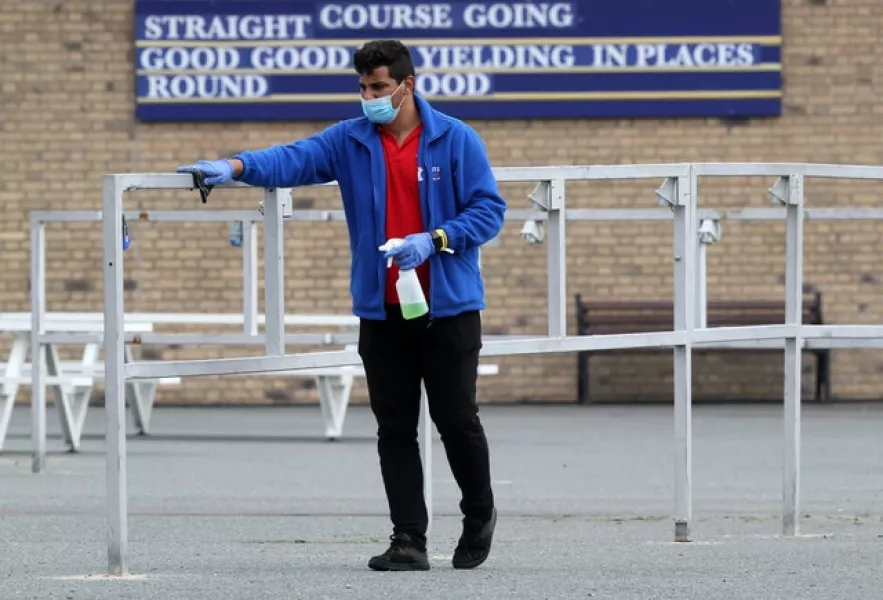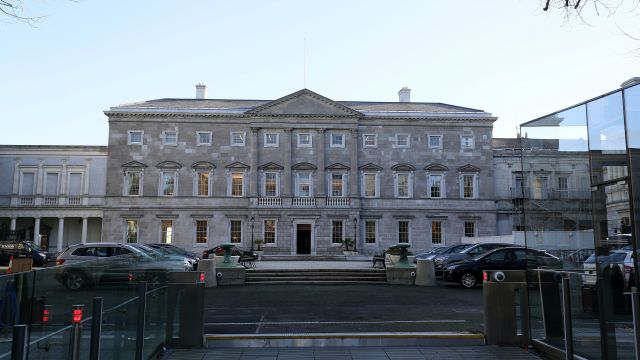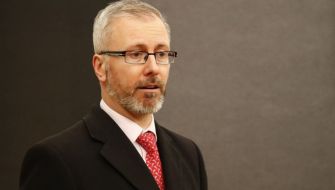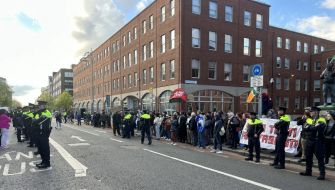TCD law professor Dr David Kenny told an Oireachtas committee that public health guidelines had confused members of the public.
He was one of a number of academics, legal experts and civil society groups before the Special Committee on Covid-19 response on Wednesday that criticised the Government’s response to the pandemic.
“It was unclear to those ‘cocooning’ in the most severe period of movement restrictions if they were legally required to stay in their homes; they were not,” Dr Kenny said.
“It has been heavily implied in several instances that the requirement to isolate for 14 days after travel is a legal obligation; it is not, and never has been.
“It might be thought in some quarters that this is a useful strategy for ensuring compliance with public health advice, as people will be more likely to comply if they think they are legally obliged to do so.

“But such a strategy raises serious rule of law concerns, and has real costs.
“It confuses members of the public; erodes public trust in communication about the law; and is an abuse of State power, implying a legal threat that does not exist.”
Law Society of Ireland president Michele O’Boyle told the committee that the Government’s communication of public health restrictions “fell short” on some occasions during the pandemic.
“While the situation facing the State in March was unprecedented, when interfering in the fundamental rights of citizens, the least intrusive approach possible which achieves the required result should always be chosen,” she said.
“It is a requirement under Irish law, EU law and the European Convention on Human Rights that there should be certainty as to the nature of legal obligations placed on individuals.
“On some occasions, the communications around restrictions fell short of providing such certainty because the extent and application of those restrictions was unclear.”
She raised concerns over the use of garda powers to ensure people complied with Covid-19 measures.
“The advisability of using policing as a means to ensure compliance with public health guidelines should be extremely carefully considered,” Ms O’Boyle told TDs and senators.
“In general terms, we would caution against introducing powers normally reserved for the investigation of serious criminal offences for the purposes of enforcing what are, at their core, health regulations.”
Doireann Ansbro of the Irish Council for Civil Liberties also raised concerns about the restriction of individuals’ rights in the government’s emergency legislation.
She said it was important that there was more guidance around what constitutes a lawful reasonable excuse for not observing restrictions.

“A situation where people are uncertain about what guidelines are legally required or what behaviour is or isn’t now illegal is simply untenable.
“Laws must be published in advance and government must be very clear about what is a law and what is not.”
She described last week’s pub grub regulations as “unnecessary and inappropriate”.
“It’s clear the human rights tests of necessity and proportionality have not been applied to these regulations and if they had they would not have been met,” she said.
Earlier in the day the committee heard that the political response to the pandemic has been extreme and was outweighing other important economic and societal issues.
Retired UK Supreme Court judge Lord Jonathan Sumption said governments in Europe and North America had treated the outbreak of Covid-19 as an unprecedented situation, when he believes it should not be considered as such.
“There have been epidemics and pandemics before over the last 40 or 50 years and they’ve hardly touched Europe or North America,” he said.
“That has given us a sense of invulnerability which we are now learning was a mistake, we are not actually invulnerable.
“The reason why the reaction has been so extreme is that we have come to believe that there is nothing that the state cannot do to protect us, and that is something borne of our extremely fortunate experience over the last half century.
“It’s not going to continue.
“We’re likely to have more pandemics of this kind and we have to develop the kind of sense of proportion that I’m afraid we’ve forgot over the last century since the previous pandemic which was the Spanish flu between 1918 and 1921.”
Lord Sumption and Gabriel Buquicchio, president of the Venice Commission of the Council of Europe, joined the committee meeting by video link from London and Strasbourg respectively.
Mr Buquicchio told the committee “a lot of good lessons” are being learned now for the next crisis, as he warned: “Unfortunately, I feel we’ll have new pandemics like this one if not more serious.”
The committee met to discuss the legislation and regulations introduced by the State in response to the virus.
The committee also examined the legal framework used to underpin responses to the pandemic in the UK and other jurisdictions.
Asked by Fianna Fáil TD Jim O’Callaghan whether too much emphasis has been put on public health advice to the exclusion of other important factors, such as the mental health of older people and the educational needs of children, Lord Sumption said: “I do think so.
“The question is how far should you allow clinical and medical considerations to outweigh the many other factors that make up the vigour of human life in a free and open society like ours.”
He said it is not an issue that should be handed over to scientists “even if the scientists agreed, which they don’t”.
In her statement, chairwoman of the Bar Council of Ireland Maura McNally urged the Oireachtas to ensure the courts system has sufficient funding to address the backlog of cases created by the lockdown.
She said meaningful and timely access to courts was not only necessary but hugely important.
The body, which represents 2,200 barristers, also called for better communication from the Government about Covid-19 public health guidance.







